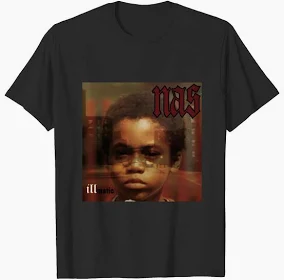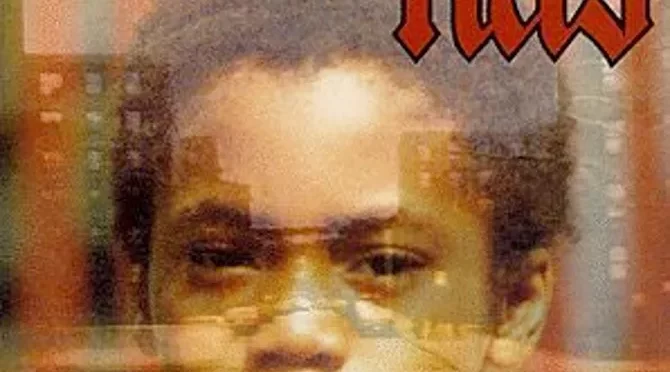One of the many benefits of teaching at an HBCU is that it forces you to remain abreast of popular culture trends. There is rarely a week that passes that some new “trend” reminds me that I am now a middle-aged man who has almost, I do emphasize almost, seen it all. Although I would love to say that the cultural factors that shaped my childhood are long gone. The truth of the matter is that they remain present. When I see today’s youth culture, I am reminded of rapper Q-Tip of a Tribe Called Quest who offered the following brilliance in the song Excursions.
Back in the days when I was a teenager
Before I had status and before I had a pager
You could find the Abstract listening to hip hop
My pops used to say, it reminded him of be-bop
I said, well daddy don’t you know that things go in cycles
The way that Bobby Brown is just ampin’ like Michael
Prior to the global pandemic’s arrival, there was rarely a day that I was not reminded that my generation, the creators of Hip-Hop Culture, have been pushed from the center stage by younger African-Americans.
Let me be honest about this situation, there is regret and bitterness that afflicts every generation when their time under the spotlight ends. This moment breeds regret regarding things that you wish could have been said, attempted, or accomplished. If one is not careful, you will find yourself steeped in a self-promoting generational warfare battle that you are bound to lose. I have done my absolute best to not participate in intra-racial cultural wars that ultimately paint me as some miser whose present is marred by an envious view of these anonymous historically and culturally illiterate kids who lead Hip-Hop Culture today.
Trust me when I say that the urge to denounce black youth culture is omnipresent, in fact, it often appears that young African-Americans are begging us to do such.
The latest invitation to criticize today’s hip-hop generation arrived via the imagery and video of rappers Cardi B and Megan Thee Stallion. If it can be stated that “a picture is worth a thousand words,” the referenced photo communicates a host of things that generations of black folk have fought against with all their might. We must never forget that although black men have been socialized within a white patriarchal society that there are many who possess enough wisdom and courage to take definitive action to protect black women who Malcolm X characterized as “the most disrespected person on the planet.”
Considering that I am one of the black men who have dedicated much of their lives to protecting and uplifting black women, Cardi B and Megan Thee Stallion could present a dilemma that revolves around a question of should that type of black woman be protected by black men. Keep in mind that I said COULD present quite a dilemma. In actuality the dilemma is non-existent.
The historically literate in our midst realize that the imagery and message being promoted by some record company for profit is not much different than previous rap songs and videos such as Luther Campbell’s Scarred, Too Short’s Blowjob Betty, Ying Yang Twins Wait, Ludacris What’s Your Fantasy, Missy and Ludacris One Minute Man, Khia My Neck My Back, 2 Live Crew We Want Some Pussy & Pop that Pussy, and the list goes on and on.
We all should understand that imagery matters. So, regardless of how you consider the marketing campaign surrounding Cardi B and Megan Thee Stallion, it is impossible to argue against the assertion that this presentation matters. Some blacks are cringing at the imagery because they believe that it verifies bigoted whites’ stereotypes of Black America. I will tell you the truth, I am unconcerned with outsiders’ view and belief systems that never fail to amplify occurrences of ignorance while ignoring more plentiful moments of black excellence.
My concern is focused on the impact that negative hip-hop images and messages have on emerging generations of black boys and girls devoid of effective parental supervision and guidance. Let’s keep in mind that they are both digesting these images. The haunting words of James Baldwin remind us that
Children have never been very good at listening to their elders, but they have never failed to imitate them.
Equally important is the unfortunate reality that it is Cardi B and Megan Thee Stallion who stand at the forefront of debates surrounding black women. They are certainly black women, however, they are far from a fair representation of black womanhood.

Nevertheless, the centerstage status of Cardi B and Megan Thee Stallion has once again muted the genius and incalculable ingenuity of black girls and women that I know. At a moment where it appears that Presidential hopeful Joe Biden is poised to select a black woman as his running mate, Black America is engrossed in criticism regarding a cultural expression that is far from new.
Such developments leave me with no other reasonable conclusion than the following one. If black women really want to be heard, intelligence is not the most reliable path. A more productive path appears to pattern themselves after black cultural icons such as Lil Kim, Khia, and Foxy Brown; put simply, they should use their physical attributes to get what they want. After all, that is the message that men, regardless of race/ethnicity, have given to black women throughout the annals of time.
So, in the words of UGK,
Let me see it, let me see it
Let me see it, let me see it
Let me see it, let me see it
Let me see it, bend over and let me see it
Let me see it, let me see it
Let me see it, let me see it
Let me see it, let me see it
Bend over and let me see it
If you do that, I guarantee you that you will be ushered to center stage and the world will notice you.
Dr. James Thomas Jones III
©Manhood, Race, and Culture, 2020.
Like this:
Like Loading...







